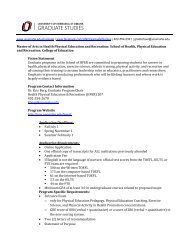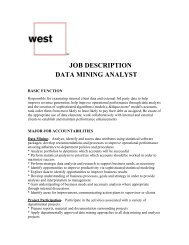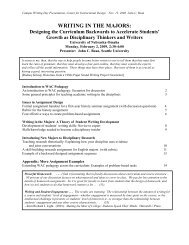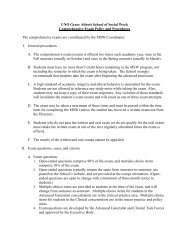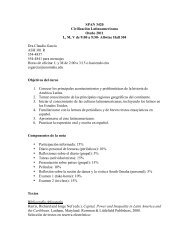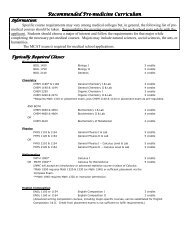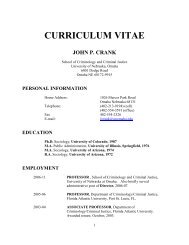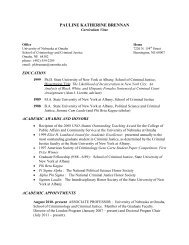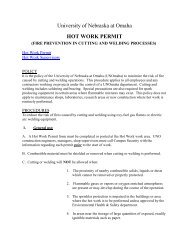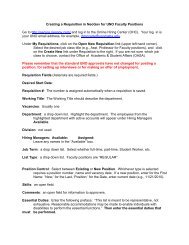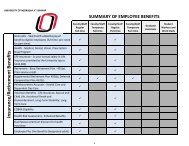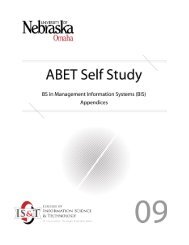Bloodborne Pathogen Exposure Control Plan - University of ...
Bloodborne Pathogen Exposure Control Plan - University of ...
Bloodborne Pathogen Exposure Control Plan - University of ...
You also want an ePaper? Increase the reach of your titles
YUMPU automatically turns print PDFs into web optimized ePapers that Google loves.
1. Special precautions must be taken when disposing <strong>of</strong> infectious waste. All infectious waste<br />
must be put in red (biohazard) bags and placed in containers located at Health Services, Athletic<br />
Training, Campus Recreation (Central Issue), and Milo Bail Student Center. Biohazard waste is<br />
transported and disposed by a contractor.<br />
A. Mechanical means, such as a brush and dust pan, must be used to pick up potentially<br />
contaminated broken glassware.<br />
B. Broken contaminated glassware and sharps must be placed in sharps containers prior to<br />
disposal.<br />
NOTE: Glass disposal is a potential hazard for departmental and environmental personnel. Glass<br />
should be placed in a puncture-resistant container and labeled that it contains GLASS.<br />
2. Contaminated laundry must be handled as little as possible.<br />
A. Wet contaminated laundry must be placed and transported in bags or containers that prevent<br />
soak-through or leakage to the exterior.<br />
B. Employees who have contact with contaminated laundry must wear gloves and other<br />
appropriate personal protective equipment.<br />
HEPATITIS B VACCINE<br />
1. Hepatitis B vaccines must be available to Class I and II employees (including student<br />
employees), within 10 working days <strong>of</strong> assignment.<br />
A. The <strong>University</strong> will cover the cost <strong>of</strong> the vaccinations for <strong>University</strong> employees.<br />
B. Employees who choose not to be vaccinated must sign a declination form (Form II); they may<br />
later opt to receive the vaccine at no cost.<br />
2. Students with the potential for exposure to blood and other body fluids as part <strong>of</strong> their<br />
academic program must show pro<strong>of</strong> <strong>of</strong> initial vaccination with Hepatitis B to enter the program.<br />
The student must complete the vaccination series within six (6) months. The student is<br />
responsible for the vaccination costs.<br />
POST EXPOSURE PROCEDURES<br />
Following an exposure incident at UNO, employees and students must immediately report to<br />
Health Services during business hours. Students and employees must report to an emergency<br />
room (preferably UNMC) after hours. Employees must also notify their supervisor <strong>of</strong> the<br />
exposure incident.<br />
A. Employees, including student employees, who report to Health Services or the emergency<br />
department will receive a confidential medical evaluation and follow up which must include




